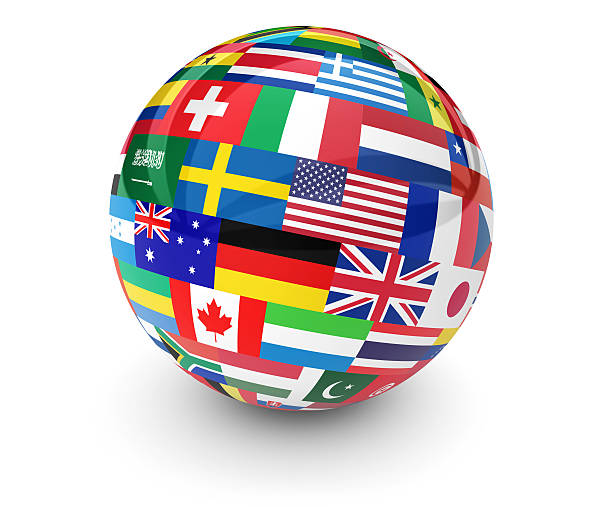
What’s in store for International Surrogacy?
After two years of COVID-19, lockdowns, quarantines and OMICRON, for intended parent(s) wishing to create their family via IVF and international surrogacy it has been an extraordinarily stressful and challenging time. Usually, absent the above, by the time intended parents commit to surrogacy, the march of time takes on a heightened sensitivity. Now as at Spring 2022, there is a palpable sense that, understandably, intended parents are not prepared to place their plans on hold any longer and are impatient to commit.
However, recent geo-political events mean that not only do intended parents have to consider, at the outset, which surrogacy destination is most compatible with their ideologies and budgets, they must also consider the prospect of one of their possible surrogacy destinations being engaged in international warfare.
Ukraine
The Russian invasion into Ukraine, following swiftly on from the pandemic, have served as a striking reminder as to how even the most meticulously planned surrogacy journeys can be thrown off course by external forces. Currently, the Russian attacks are causing great anxiety for all concerned. Intended parents are worried about the welfare of their unborn child and Ukrainian surrogates are torn between their obligations to the intended parents and staying put to be with their own biological families.
Notwithstanding the unpalatable attitudes to homosexual or single parents and the unique fact that children born to Ukrainian surrogates are born stateless, for heterosexual intended parents, the Ukraine has long been a popular surrogacy destination due to the allure of commercial surrogacy arrangements, the early transfer of parentage and the comparatively low cost. However, against the backdrop of war, concern for the surrogate and the unborn child, foreign office advice not to travel will most likely also be accompanied by the lack of consular support for English birth and citizenship registration. Now, before intended parents enter into any surrogacy contract, they need to be satisfied that they have done not only their due diligence but also carried out their catastrophe planning.
International surrogacy
Irrespective of the imminent domestic legal reforms and new parent pathways, the checklists for intended parents wishing to enter into an international commercial surrogacy arrangement are becoming more comprehensive. Topics demanding serious consideration include the availability of surrogates, the welfare and support for the surrogates, accessibility to affordable and quality healthcare, favourable foreign legislation which permits a rapid transfer of parentage either pre or post birth, careful scrutiny of insurance policies for the surrogate and their child, the practicalities of travelling to and from the surrogacy destination, the ease at which one can obtain a travel document upon which they are able to bring their child home and contingency planning in the event of lockdowns, the likelihood of travel restrictions, a resurgence of a COVID variant and international conflict.
Given the above, notwithstanding the costs, there remains a lot to be said for the tried and tested surrogacy friendly states in the US and Canada. Whilst the in US the total costs (including the insurance costs) in certain states can be prohibitively expensive for some, it is worth seeking advice from My Surrogacy Journey who will be able to assist you in navigating options within your budget.
Canada
Certain states in Canada permit altruistic surrogacy where the payment of only reasonable expenses is legally permitted. This inevitably reduces the costs considerably. Provided the intended parents have the patience required to match with a surrogate (this can be up to two years or three for twins), benefits such as the surrogate and the child having ready access to excellent state health care, along with an established surrogacy friendly legal framework and a stable government can offer intended parents significant peace of mind.
Greece
Surrogacy has been legal for heterosexual couples in Greece since 2002 and available for foreign couples since 2014. Altruistic contracts are legally recognised and enforceable provided they have been approved by a Judge, prior to conception. From the moment of the baby’s birth, in accordance with the surrogacy contact, parental rights are conferred upon the intended parents.
Other options
Although the Ukraine is no longer a feasible option, other emerging foreign surrogacy destinations are growing in popularity. Mexico and Colombia in particular, are attracting considerable interest from UK based intended parents. However, these jurisdictions are still in the process of developing their surrogacy legislation and regulation which, can mean that the transfer of parentage from the surrogate to the intended parents should not necessarily be assumed. It will be imperative to speak with a local specialist lawyer to appreciate and understand how both the surrogate, the child and the intended parent(s) are protected under the existing legislative framework.
By its very nature, surrogacy is often a challenging and costly process, but with thorough due diligence, bespoke advice from those experienced within the field here and abroad, intended parents should be reassured that there are plenty of viable alternatives to surrogacy in the Ukraine.
Sarah Williams, Payne Hicks Beach
24.02.22





